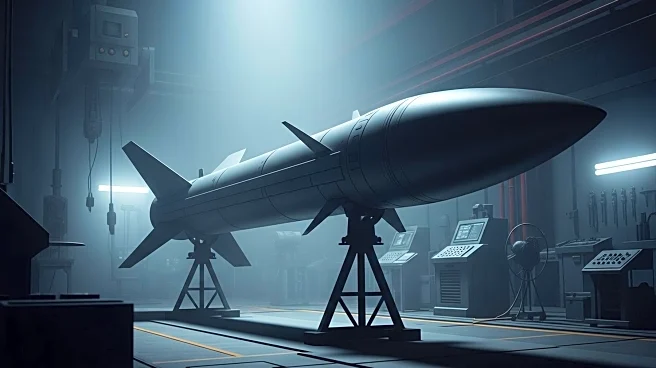What's Happening?
North Korean leader Kim Jong Un recently inspected a newly inaugurated missile production line in an undisclosed location. This inspection comes ahead of his planned visit to Beijing, where he will attend a military parade alongside Russian President Vladimir Putin. During the inspection, Kim assessed the state of North Korea's missile production capacity, as reported by North Korean state media. The visit to China marks Kim's first trip to the country since 2019, highlighting his limited international travel since assuming power in 2011. The parade in Beijing offers Kim a rare opportunity to appear alongside other world leaders, including Xi Jinping and Putin, who are advocating for an alternative world order.
Why It's Important?
Kim Jong Un's inspection of the missile factory underscores North Korea's ongoing efforts to enhance its military capabilities amidst international sanctions. The visit to China signifies a strengthening of ties between North Korea, China, and Russia, potentially impacting geopolitical dynamics in Northeast Asia. This alignment may influence regional security and diplomatic relations, as North Korea seeks to position itself as a strategic player alongside powerful nations. The development of missile technology and increased production capacity could pose challenges to global security, prompting concerns among neighboring countries and the international community.
What's Next?
Kim Jong Un's visit to Beijing for the military parade may lead to further diplomatic engagements with China and Russia, potentially resulting in increased cooperation or agreements. The inspection of the missile factory suggests continued advancements in North Korea's weapons program, which may lead to further missile tests or demonstrations of military strength. The international community, particularly the United States and South Korea, may respond with heightened vigilance and diplomatic efforts to address the implications of North Korea's military developments.
Beyond the Headlines
The strengthening of ties between North Korea, China, and Russia could signal a shift in global alliances, challenging the influence of Western powers. This development may lead to increased military collaboration and technological exchanges among these nations, potentially altering the balance of power in the region. The focus on missile production and military capabilities highlights the ongoing prioritization of defense over economic development in North Korea, impacting the country's domestic policies and international relations.










